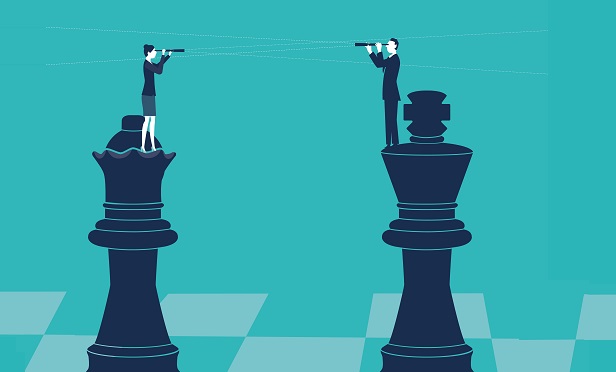 Nearly a quarter of women believe their careers have suffered because they turned down romantic attention or attempts from a direct supervisor. (Image: Shutterstock)
Nearly a quarter of women believe their careers have suffered because they turned down romantic attention or attempts from a direct supervisor. (Image: Shutterstock)
While compensation inequality and workplace sexual harassment continue to be top issues among employers, it turns out that many people are okay with the status quo, according to Randstad US's report, “Women in the Workplace 2019.”
“While fewer women than men believe they are paid fairly, most have no way of knowing what others earn—and most don't care, as long as they feel they are adequately compensated for their work,” the authors write.
Related: Pay-equity claims rising, creating compliance 'minefields'
Research Now surveyed more than 1,200 workers on behalf of Randstad US and found that while most women (61 percent) would leave an employer if they learned a male counterpart was making more than them, 71 percent of women don't care as long as they personally feel they're fairly compensated.
As for male workers, nearly four in 10 (36 percent) feel women should not necessarily earn equal pay if their employers give women more time off than men for family leave.
The survey also found that many workers don't report to management when they witness sexual harassment of another employee—though the survey did not ask whether respondents would corroborate a coworker's story if the person reported the incident first.
Fifty-one percent of the respondents say they know a woman who has experienced harassment in the workplace, while 37 percent know a man who has. Half of workers say they have not spoken up upon hearing a colleague make an inappropriate comment about a person of the opposite sex in the workplace. This could be due to the fact that a third of respondents are not confident their companies would respond quickly and appropriately if they reported a harassment incident.
A telling stat: 26 percent of women would rather quit their jobs than report they had experienced harassment. As it is, nearly a quarter (24 percent) believe their careers have suffered—they were passed over for promotions and/or received poor performance reviews, for example—because they turned down romantic attention or attempts from a direct supervisor.
Minorities are more likely to report this (42 percent of African Americans and 36 percent of Hispanics versus 24 percent of Caucasians), and they are also more likely to know a woman who has experienced workplace harassment (65 percent of Asian American/Pacific Islanders and 59 percent of African Americans versus 49 percent of Caucasians).
“Most employees aren't sure how they can improve gender equality in the workplace, but cite male advocacy and mentorship programs as important steps,” the authors write.
Indeed, 75 percent of the respondents say that having more men who are willing to be vocal about gender equality issues will help create a more equal workplace.
“In honor of International Women's Day, Randstad is encouraging both men and women to join the conversation and share how they are empowering women or have been empowered by women,” the company writes, suggesting people to post their comments on social media using #empowerawoman and tagging @RandstadUSA.
© 2025 ALM Global, LLC, All Rights Reserved. Request academic re-use from www.copyright.com. All other uses, submit a request to [email protected]. For more information visit Asset & Logo Licensing.








